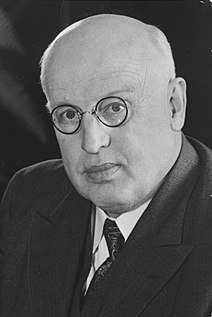| |||||||||||||||||||||||||||||||||||||||||||||||||||||||||||||||||||||||||||||
79 seats in the Legislative Assembly of Alberta 40 seats were needed for a majority | |||||||||||||||||||||||||||||||||||||||||||||||||||||||||||||||||||||||||||||
|---|---|---|---|---|---|---|---|---|---|---|---|---|---|---|---|---|---|---|---|---|---|---|---|---|---|---|---|---|---|---|---|---|---|---|---|---|---|---|---|---|---|---|---|---|---|---|---|---|---|---|---|---|---|---|---|---|---|---|---|---|---|---|---|---|---|---|---|---|---|---|---|---|---|---|---|---|---|
| |||||||||||||||||||||||||||||||||||||||||||||||||||||||||||||||||||||||||||||
| |||||||||||||||||||||||||||||||||||||||||||||||||||||||||||||||||||||||||||||
The Alberta general election of 1979 was the nineteenth general election for the Province of Alberta, Canada. It was held on March 14, 1979, to elect members of the Legislative Assembly of Alberta, which had been expanded to 79 seats.

Alberta is a western province of Canada. With an estimated population of 4,067,175 as of 2016 census, it is Canada's fourth most populous province and the most populous of Canada's three prairie provinces. Its area is about 660,000 square kilometres (250,000 sq mi). Alberta and its neighbour Saskatchewan were districts of the Northwest Territories until they were established as provinces on September 1, 1905. The premier has been Rachel Notley since May 2015.

Canada is a country in the northern part of North America. Its ten provinces and three territories extend from the Atlantic to the Pacific and northward into the Arctic Ocean, covering 9.98 million square kilometres, making it the world's second-largest country by total area. Canada's southern border with the United States is the world's longest bi-national land border. Its capital is Ottawa, and its three largest metropolitan areas are Toronto, Montreal, and Vancouver. As a whole, Canada is sparsely populated, the majority of its land area being dominated by forest and tundra. Consequently, its population is highly urbanized, with over 80 percent of its inhabitants concentrated in large and medium-sized cities, many near the southern border. Canada's climate varies widely across its vast area, ranging from arctic weather in the north, to hot summers in the southern regions, with four distinct seasons.

The Legislative Assembly of Alberta is one of two components of the Legislature of Alberta, the other being Elizabeth II, Queen of Canada, represented by the Lieutenant-Governor of Alberta. The Alberta legislature meets in the Alberta Legislature Building in the provincial capital, Edmonton. The Legislative Assembly consists of 87 members, elected first past the post from single-member electoral districts.
Contents
The Progressive Conservative Party of Peter Lougheed won its third consecutive term in government. During the campaign, some Progressive Conservatives spoke of winning "79 in '79", i.e., all 79 seats in the legislature. This harkened back to Social Credit's unofficial slogan from the 1963 election, "63 in '63". The Tories came up short of this goal, and actually lost over five percentage points of the popular vote. Nonetheless, they still won an overwhelming majority, with 74 seats.
The Progressive Conservative Association of Alberta was a provincial centre-right party in the Canadian province of Alberta. The party formed the provincial government, without interruption, from 1971 until the party's defeat in the 2015 provincial election under Premiers Peter Lougheed, Don Getty, Ralph Klein, Ed Stelmach, Alison Redford, Dave Hancock and Jim Prentice. At 44 years, this was the longest unbroken run in government at the provincial or federal level in Canadian history.

Edgar Peter Lougheed,, was a Canadian lawyer and politician. He served as the tenth Premier of Alberta from 1971 to 1985 as a Progressive Conservative.
The Alberta Social Credit Party was a provincial political party in Alberta, Canada, that was founded on social credit monetary policy put forward by Clifford Hugh Douglas and on conservative Christian social values. The Canadian social credit movement was largely an out-growth of the Alberta Social Credit Party. The Social Credit Party of Canada was strongest in Alberta, before developing a base in Quebec when Réal Caouette agreed to merge his Ralliement créditiste movement into the federal party. The British Columbia Social Credit Party formed the government for many years in neighbouring British Columbia, although this was effectively a coalition of centre-right forces in the province that had no interest in social credit monetary policies.
Social Credit held on to the four seats they had won in the 1975 election, and formed the official opposition in the legislature. Grant Notley, leader of the Alberta New Democratic Party, was the only other opposition member.

Walter Grant Notley was a Canadian politician. He served as a member of the Legislative Assembly of Alberta from 1971 to 1984 and also served as leader of the Alberta NDP from 1968 to 1984.

The Alberta New Democratic Party, commonly shortened to Alberta NDP, is a social-democratic political party in Alberta, Canada, which succeeded the Alberta section of the Co-operative Commonwealth Federation and the even earlier Alberta wing of the Canadian Labour Party and the United Farmers of Alberta. From the mid-1980s to 2004, the party abbreviated its name as the "New Democrats" (ND).





